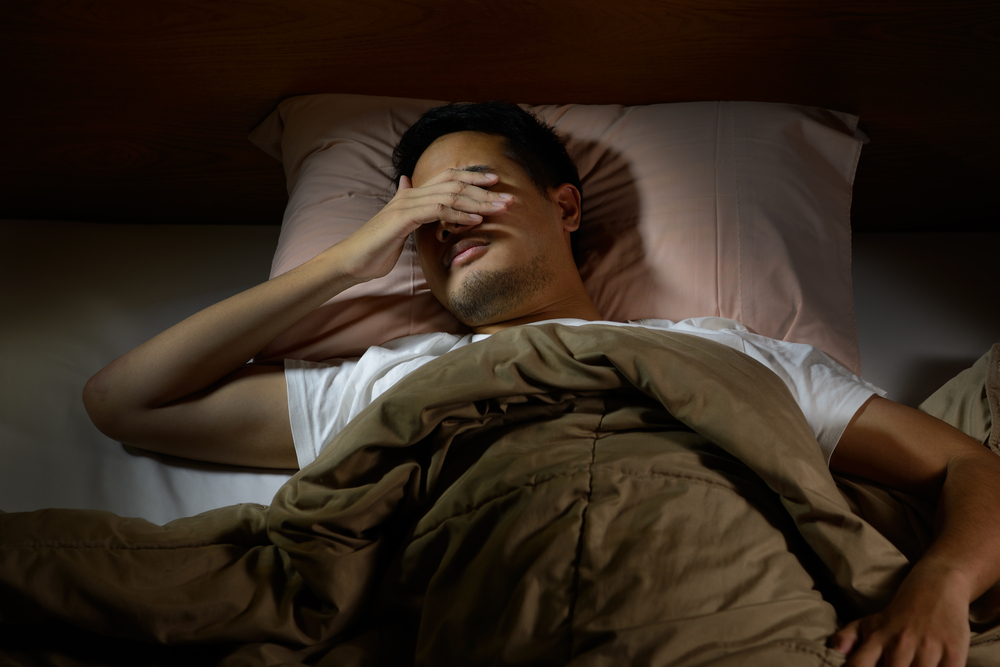Insomnia is a sleep disorder that is characterised by difficulty initiating and/or maintaining sleep. Affecting approximately 35% of the world’s population, insomnia has a predilection for women, the elderly, and people with health issues. Read on to find out more about the risk factors, symptoms, treatment and prevention tips for insomnia.
“Sleep is for the weak”
Sleep problems are becoming increasingly common worldwide due to multiple reasons, almost all of which are associated with the increasingly fast-paced, busy lifestyle. Unfortunately, due to lack of proper research, not much is known about the causes of this condition. This, along with lack of awareness, has resulted in most cases of insomnia being under-diagnosed and most people end up never seeing a doctor for their sleep issues.
This is prevalent, especially in Asia where hard work is glorified, and conversely, good sleep is trivialised. In fact, a study found that there has been an approximate 18 minutes reduction in sleep time in these countries over the last three decades.
A recent study published in the Sleep Journal revealed that 16.6% of people over the age of 50 suffer from insomnia in developing countries. It is estimated that by 2030, approximately 260 million older individuals will be included in this figure.
Risk factors
Insomnia can develop due to many different reasons but in most cases, insomnia development is completely idiopathic. This means that a specific cause cannot be found for the disorder, and it arises spontaneously without any predisposition. Some of the common causes of Insomnia are mentioned below:
Medical illnesses: Medical illnesses cause pain and discomfort which can make it difficult for people to sleep properly. The pain can make them wake up in the middle of the night, hence, affecting the sleep cycle.
Substance abuse: Alcohol and drugs such as amphetamine, caffeine, steroids, and theophylline act as stimulants, hence, resulting in difficulty initiating and maintaining sleep.
Psychiatric disorders: Mania, major depression, dysthymia, anxiety disorder, and stress can make it especially difficult to initiate sleep.
Symptoms
Insomnia may present in the form of fatigue, grumpiness, and sleepiness during the day. The symptoms may persist for a short period of time, resulting in acute insomnia or they may persist for a long period of time, often referred to as chronic insomnia.
How do you diagnose Insomnia?
The diagnosis of insomnia depends on a complete history and thorough clinical assessment. According to the DSM IV diagnostic criteria for insomnia, the symptoms must be present for at least 3 days per week, over one month, before a diagnosis can be made.
Another less common way to diagnose insomnia is through conducting sleep studies.
Differential diagnosis
Many medical conditions present with the same symptoms as insomnia. These should be ruled out before the diagnosis of insomnia can be made. Anxiety, depression, and environmental changes are some of the important differential diagnoses to keep in mind when facing symptoms of insomnia.
Moreover, some people are naturally light sleepers and often wake up with the slightest noise in their surroundings. These people should not be diagnosed with insomnia and other forms of therapy should be considered for them.
Complications
Sleep is important for the proper functioning of the body. Hence, disturbances in sleep can result in several medical issues such as;
- Hypertension / High blood pressure
- Obesity
- Depression
- Syncope
- Increased stress and fatigue
- Anxiety
- Short temper and irritability
- Slow reaction time
- Weak memory
- Decreased work efficacy and increased risk of accidents
Treatment of Insomnia
It can follow different paths but almost all of them begin with the treatment of the underlying medical conditions. Discontinuing any drugs or medications that may be related is also helpful. If insomnia persists, the following therapeutic options might be of great help.
- Relaxation techniques and CBT
It is important to educate the patient about relaxation techniques like yoga, which can alleviate stress and tension, helping them initiate sleep. Cognitive Behavioural Therapy or CBT helps patients identify their less-than-ideal sleep habits and teaches them proper sleep hygiene. This can not only treat insomnia but also help prevent it from recurring.
- Medications
Medical therapy for insomnia includes hypnotic sedative drugs that help initiate and maintain sleep. One of the most commonly prescribed medications are known as benzodiazepines. Short-acting benzodiazepines are used to initiate sleep, and long-acting benzodiazepines are used for the maintenance of sleep. However, this class of medications can be addictive and ideally used for short-term.
Patient education is the most important factor for the treatment of insomnia. Being well informed about the risks and complications of will help a patient adhere better to the treatment plan.
Tips to Prevent Insomnia
You may try practicing proper sleep hygiene which includes:
- Regular sleeping habits: Sleeping in a comfortable place at the same time every day and waking up at the same time helps to provide better sleep.
- Avoiding daytime naps
- No caffeine and stimulants late in the day, or past mid-afternoon
- No digital devices e.g. phones or e-books at least an hour before bed.
- Avoid strenuous exercise 2-3 hours before bedtime
- Have a light dinner
- Specific room settings: The room should be dark and cool with minimal distractions. Also, only use your bed specifically for sleep, instead of working.
- Have a warm bath near bedtime.
Alternative Treatment Options
Melatonin is being studied to treat insomnia and the initial results are quite promising. L-tryptophan, a vegetable-based amino acid, is also under trial as a non-addictive alternative drug.











